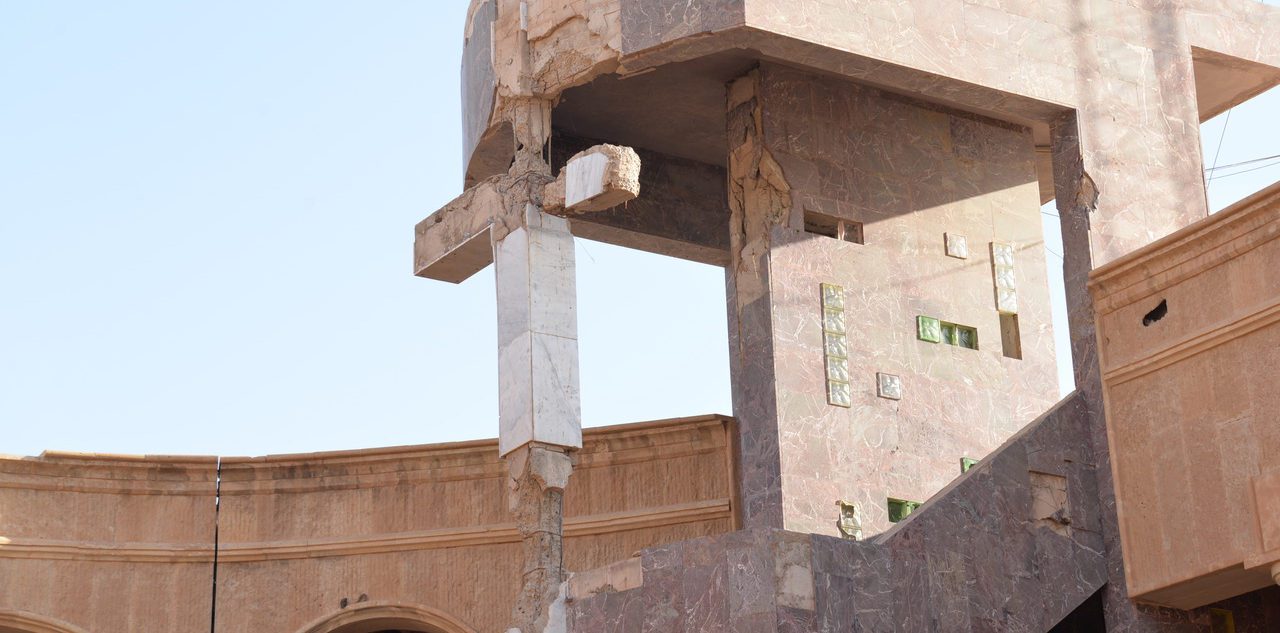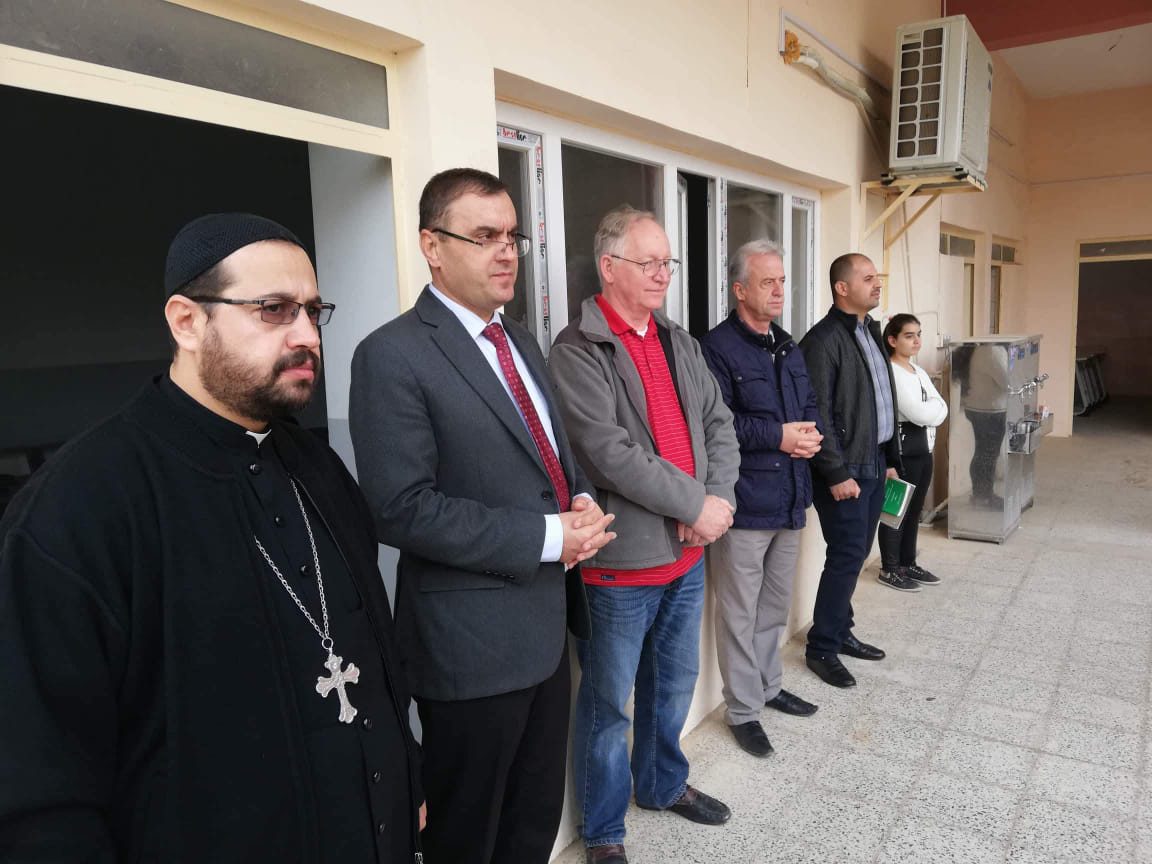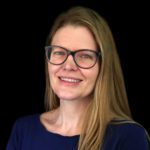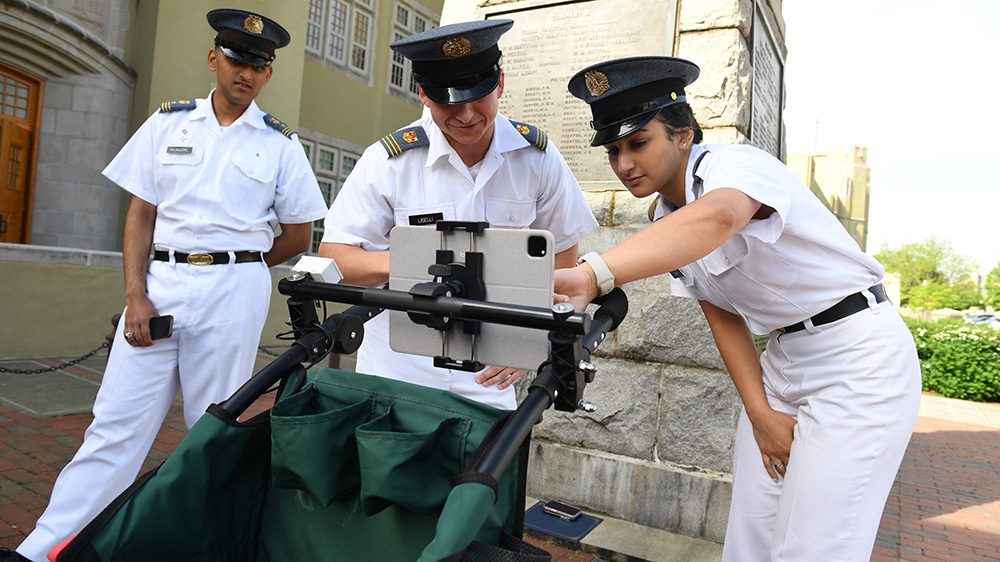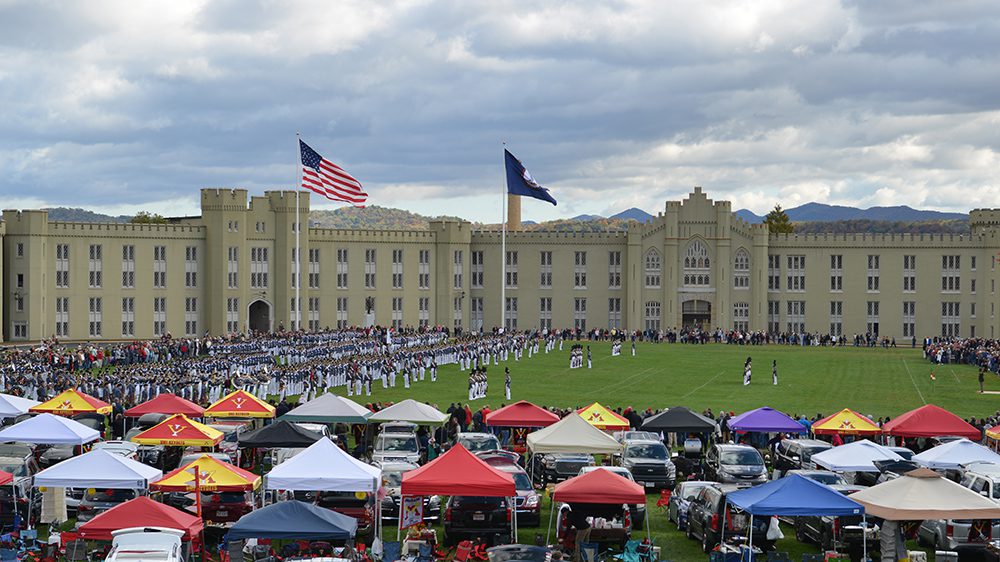J.B. Smith ’74 spent years serving in the military followed by working internationally in the private sector, serving at high levels. He gained experience as a professional engineer and in organizational leadership. Illustrating the internationality of his life, Smith noted that he and his wife, Mary, have seven children – who were born in five different countries.
Recently retired, Smith is still using his expertise – in a different capacity. He travels to the Nineveh Plains area of northern Iraq every few months as a volunteer, lending his professional engineering skills and experience in organizational management to the process of rebuilding minority Christian communities. Almost all non-Sunni Muslim residents fled their communities, which were then systematically destroyed by ISIS in 2014-17.
Smith’s volunteer work is through the Aid to the Church in Need organization. ACN has a headquarters in a small German village near Frankfurt. During his professional career, Smith and his family lived in twice the village – called Königstein im Taunus. Smith and his wife got to know the organization, and his wife volunteered there. “When they learned that I was getting ready to retire, they asked if I would like to help,” Smith said. “They knew the kind of work I did – the organizational work, and the international experience.”
Through the Aid to the Church in Need, the three major Nineveh Plains churches – the Syrian Catholic Church, the Syrian Orthodox Church and the Chaldean Catholic Church – are working together under a cooperative agreement called the Nineveh Reconstruction Committee. Funding flows in from about 20 different organizations worldwide – ranging from the Hungarian and German governments to religious charities, like the Protestant-based Samaritan’s Purse out of Boone, North Carolina, and Aid to Church in Need, a papal charity of the Catholic Church. Each church has two representatives on the committee, and the Church in Need has organized technical experts to help with the reconstruction. The efforts encompass nearly 400 church properties and 13,000 houses.
Smith is one of these technical experts. He provides independent audits to finished projects. “[On] my last trip, I was there for two weeks and I went through and audited homes to verify that the work had been done [to] the standard,” Smith said. His audit includes making sure “there are no issues with the financing, with the quality of the work or the satisfaction of the people.” The finished projects Smith has audited – completed by local laborers with local materials – have been completed to a consistently high standard, and there have been very few homeowners who were not satisfied with the results.
About 40 percent of the population – 9,000 families – has returned to the Nineveh Plains, and a nearly equal percent of houses are again habitable. The population is primarily Christian Iraqis, but also includes Muslims and other minority groups, like Yazidis. Three basic things are necessary for people to return to their towns – and to stay there, Smith said. “The first is security. The second is a place to live. The third is a means of earning a living to provide for their families.” Security has been improving, and Smith is affecting the second item – when he audits completed construction projects. In addition, using his organizational and planning skills, he completed a study on employment, interviewing people about work patterns before and after ISIS. He is working on a program that would provide grants for opening and growing small businesses.
When he travels to Iraq, Smith flies into the larger city of Erbil where he spends a couple of days. He spends the rest of his time in the smaller villages of the Nineveh Plains – mainly in Qarakosh and Bartella. He travels without security, adhering to the saying “courage is nothing more than fears that have said their prayers,” and eschews luxurious lodgings. “In Qarakosh, I stay at the old seminary. I’ve got a monk’s cot,” he said. He walks around the towns at all hours – oftentimes with a priest he calls Father George – speaking with and encouraging people.
“People like to talk to Americans,” he said. “A lot of people speak some English; Google translate is on everybody’s iPhone.” Although he provides a high level of technical and professional expertise, Smith notes that simply talking to people “may be the biggest impact. People know that they’re not forgotten.”
The people of the Nineveh Plains – including Christians, Muslims and Yazidis – are settling, little by little, back into the area where they have lived together for centuries. NCR’s rebuilding efforts have made resources available to not just Christians, but any former resident who needs help – including Muslims. Smith recounts a story of a Muslim man, “walking around in a daze,” in disbelief after receiving aid through NCR. The man said, “‘I can’t get any help from my government, but I’m getting help from the [Christian] church,’” Smith remembered. “We see more of that going on. Maybe it will have a positive long-term impact.”
The reconstruction program has been called “The Marshall Plan for the Nineveh Plains,” – a phrase often used when “someone wants to make a breakthrough change,” Smith noted. When talking about the architect of the plan, George C. Marshall ’901, it is important to note that Marshall “lived a life of service. You look at him and all that he did, that’s got to be the biggest take away,” Smith said. “I think service is important. As long as you are able and you’ve got the skills for certain situations, why not say yes? Make a difference.”
